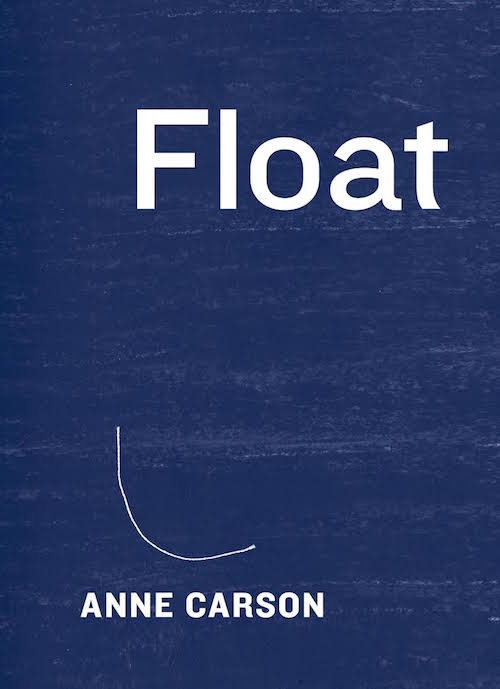The Third Place, Between Naming & Chaos

Mary Ruefle's writing--particularly that in her new book, My Private Property, a collection of short essays and prose poems--is looked at alongside Anne Carson's Float, a collection of 22 chapbooks from Knopf, at Los Angeles Review of Books. "Carson and Ruefle are both poets and more than poets: they are essayists, experimenters; they teach; they are mind-movers and prize-winners. Both concern themselves with what’s to be found in texts from before, Carson as a translator of ancient Greek, Ruefle in her erasure projects, in which she takes old texts and whites-out or eclipses all but a few words, making new meaning from what’s already there. They share a vigor, a sanguine, impassioned engagement with language, the results of which are, in turn, knavish, breathtaking, totally thrilling." More from Nina MacLaughlin on time’s press on their minds:
In their short essays, over the span of a page or three or five, Ruefle and Carson guide the reader or the listener on a path of thought; we stay with them in part for the startling detonations of words. Carson: “They say there is a moment at life’s end when the soul leaves the body. I don’t know if it has a sound. Or a sort of duration that is the sound of sound cocking itself.” Ruefle: Orange sadness “speaks the same antlered language of phantoms and dead batteries.” And in part because they are conscious of their role as guides. “But let’s return for a moment to…” Carson writes, grabbing our hand, pulling us on. “But wait,” Ruefle interjects in a lecture in Madness, Rack, and Honey (2012), guiding us as her thought unfolds.
Further in, MacLaughlin finds "the third place":
In Madness, Rack, and Honey . . . she writes of the “sacred word”; it’s “a secret and cannot be spoken without consequence, be it blessing or curse. There is simply too much power in certain words, and the unnerving force of naming casts a great spell over language.” Carson knows the spell of naming, too. “Adam long ago named all the creatures,” she writes in “Variations on the Right To Remain Silent.” This act of naming is “our human history, our edifice of thought, our answer to chaos.” And then Eve comes along and her “instinct was to bite this answer in half.” But there is a third place to be between naming and chaos, argues Carson, and that place is translation, where one inevitably comes up against the untranslatable, “a word that stops itself.” She uses the word moly as an example, from The Odyssey. It’s a plant with powers, sacred; it’s for the gods who are no different than us except for their immortality. “They know how not to die. And who can say but the four untranslatable letters of moly might be the place where that knowledge is hidden.” That’s what’s at stake in this space between naming and chaos, a great secret. That word, certain words, bring “a whiff of immortality” with them.
Continue the read at LARB.


